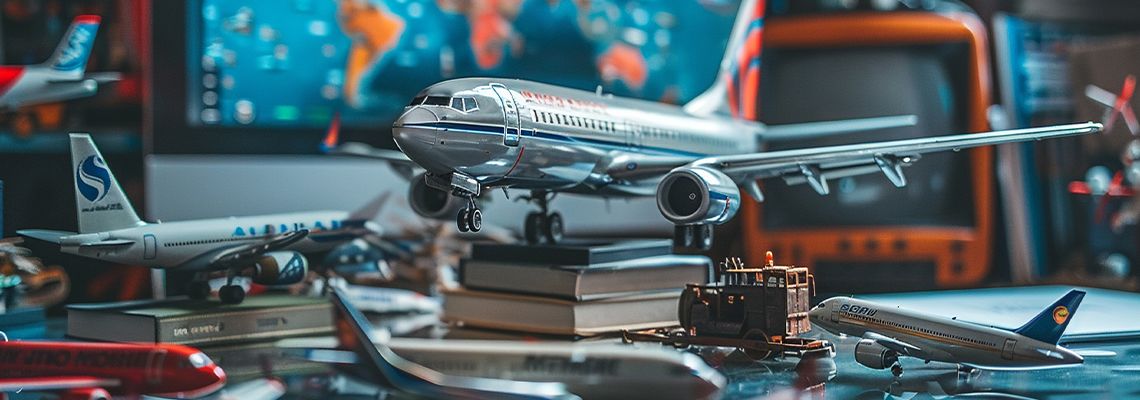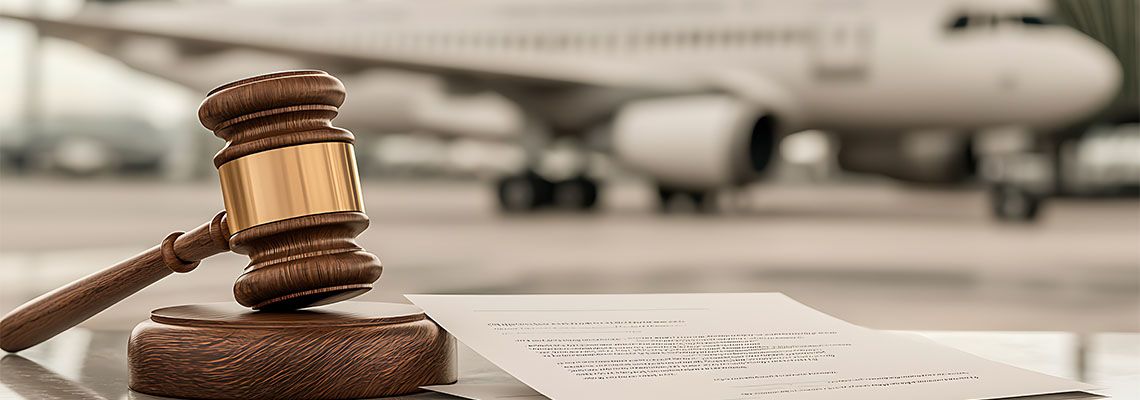Acquiring an aircraft for your business is a monumental step that can revolutionize your operations, improve efficiency, and even offer an edge in a competitive market. However, deciding whether to purchase or lease a plane is no small task.

What Are Some Reasons for Litigation After an Aircraft Sale?
Selling or buying an aircraft can be an exhilarating venture, filled with visions of soaring success and a taste of the high-flying lifestyle. However, it’s not all smooth sailing. Behind the scenes, a complex web of legalities and financial considerations can lead to turbulent times if not navigated carefully.
An aircraft sale usually involves a large amount of money and chances are you don’t want to put your finances in jeopardy. Whether you are the seller or buyer, any disputes that eventually lead to litigation after an aviation transaction is complete can make your life harder. What can you do to prevent this?
Working with an aviation transactions attorney at William G. Harger & Associates, PLLC, can be a proactive measure to identify possible risks and develop a strategy to minimize or address them before they turn into a full-scale legal battle.
Common Reasons for Litigation After Buying or Selling Aircraft
Whether you're a buyer or someone considering selling aircraft, the last thing you want is to pay or receive a huge amount of money and end up being embroiled in legal disputes. Below are eight common reasons that often lead to disputes following an aircraft sale.
1. Misrepresentation of Aircraft Condition
Sellers are expected to provide an accurate description of the aircraft’s state, including any known defects or issues. When sellers fail to disclose critical information, buyers may find themselves stuck with unanticipated repairs or maintenance costs.
Imagine purchasing what you thought was a well-maintained aircraft, only to discover severe engine problems shortly after the sale is finalized. This scenario can lead to mistrust and, ultimately, legal action as the buyer seeks compensation for misrepresentation.
Tip: Buyers should always conduct a pre-purchase inspection to verify the aircraft's condition. This step helps identify any existing issues and ensures that all parties have a clear understanding of the aircraft's true state before finalizing the transaction.
2. Breach of Contract
Contracts are the backbone of any aircraft sale, outlining the terms and conditions agreed upon by both parties. A breach of contract happens when one party fails to do what they agreed to do in the contract. In aircraft transactions, such breaches can happen for various reasons, from delayed payments to failure to deliver the aircraft on time.
For example, if a seller agrees to deliver the aircraft by a specific date but fails to do so without a valid reason, the buyer may seek legal recourse for breach of contract. Conversely, if a buyer fails to make the agreed payment within the stipulated timeline, the seller might initiate litigation to recover the amount owed.
Tip: Making sure contracts are clear, comprehensive, and legally binding can help prevent breaches and reduce the likelihood of litigation. Both buyers and sellers should carefully review and negotiate contract terms to ensure mutual understanding and agreement.
3. Discrepancies in Title Transfer
A clear and undisputed title transfer is a must for any successful aircraft sale. Title discrepancies can arise from various factors, including unresolved liens, previous ownership claims, or incomplete documentation. Such issues can lead to disputes and may require legal intervention to resolve them.
Consider a scenario where a buyer, after completing the purchase, discovers an existing lien on the aircraft. The buyer now faces unexpected financial burdens and legal complexities. In such cases, litigation may become necessary to rectify the title and ensure rightful ownership.
Tip: To mitigate title-related issues, both parties should conduct a thorough title search and work with aviation transaction attorneys. This due diligence can help identify potential red flags and ensure a smooth title transfer process.
4. Failure to Comply with Regulatory Requirements
The aviation industry is governed by strict regulations designed to ensure safety and compliance. Failure to adhere to these requirements can lead to litigation. Regulatory issues may involve airworthiness certifications, maintenance records, or adherence to environmental standards.
For instance, if a seller fails to provide proper airworthiness documentation, the buyer may face operational delays and potential legal consequences. Similarly, non-compliance with environmental regulations can result in hefty fines and legal action.
Tip: Both buyers and sellers should familiarize themselves with applicable regulations and ensure that all documentation is accurate and up to date.
5. Disputes Over Purchase Price or Valuation
Disagreements over the purchase price or valuation of an aircraft can also lead to disputes between a seller and a buyer. These disagreements often arise from differing opinions on the aircraft's market value or misinterpretation of appraisal reports.
Imagine a buyer and seller agreeing on a purchase price based on an appraisal, only to find that the appraisal was inaccurate or outdated. The resulting discrepancy can lead to financial losses and litigation as both parties seek to resolve the conflict.
Tip: To avoid disputes over the purchase price, it may be a good idea to obtain multiple appraisals from reputable sources and ensure that all parties are in agreement regarding the aircraft’s value.
6. Fraud or Deceptive Practices
Fraudulent activities or deceptive practices, though less common, can have severe legal consequences. Fraud may involve falsifying documents, altering maintenance records, or intentionally hiding defects.
Consider a scenario where a seller provides forged maintenance records to give the appearance of a well-maintained aircraft. Once the fraud is discovered, the buyer may initiate legal action to recover damages and hold the seller accountable.
Tip: Vigilance and due diligence are key to preventing fraud. Buyers should verify all documentation independently and work with trusted aviation professionals to ensure the transaction is legitimate.
7. Warranty Disputes
Warranty disputes arise when there are disagreements over the coverage or terms of a warranty provided with the aircraft. These disputes often involve differing interpretations of warranty clauses or claims of breach of warranty.
For instance, a buyer may attempt to claim warranty coverage for a component failure, only to be denied by the seller based on warranty exclusions. Such disagreements can escalate to litigation if not resolved amicably.
Tip: To minimize warranty disputes, clearly define warranty terms in the contract and ensure both parties have a shared understanding of coverage and exclusions. Proper documentation and communication can help prevent misunderstandings.
8. Negligence or Liability Claims
Negligence or liability claims may arise if one party is accused of failing to perform their duties, which then leads to damage or injury. These claims can involve various aspects of the transaction, from maintenance negligence to improper handling of the aircraft.
Imagine a situation where a buyer discovers that essential maintenance was negligently performed, resulting in operational issues. The buyer may pursue legal action to hold the seller accountable for negligence and seek compensation for damages.
Tip: To protect against negligence claims, sellers should maintain thorough records of all maintenance activities and adhere to the set industry standards. On the other hand, buyers should conduct independent inspections and seek assurance of the aircraft's safety and compliance.
Facing Disputes During or After an Aircraft Sale? Get the Trusted Guidance You Deserve
Buying or selling aircraft isn’t just any transaction. Given the sums of money involved, the stakes are very high. This also translates to the potential for nasty legal battles should any disputes between the buyer and seller arise.
Regardless of the reason for a dispute in your aircraft transaction, you may need an attorney’s guidance before the dispute leads to litigation and deprives you of your money, time, and energy.
The attorney at William G. Harger & Associates, PLLC, serves clients in Houston and the surrounding area in Texas, including Austin, Dallas, and San Antonio, as well as other states. You can reach out to schedule a free consultation and discuss your situation.
RECENT POSTS
Corporate aircraft are valuable assets that require meticulous care to operate safely, effectively, and in compliance with regulations. For aircraft owners, operators, and aviation businesses, it's not just about ensuring the aircraft remains airworthy but also about protecting the significant investments tied to these machines.
The aviation industry is a dynamic and complex sector, where businesses often collaborate to share resources, reduce costs, and expand their reach. One of the most effective ways to achieve these goals is through a joint venture. Whether it’s a partnership between airlines to streamline operations or a collaboration between manufacturers to develop cutting-edge aircraft technology, joint ventures play a pivotal role in shaping the industry.



